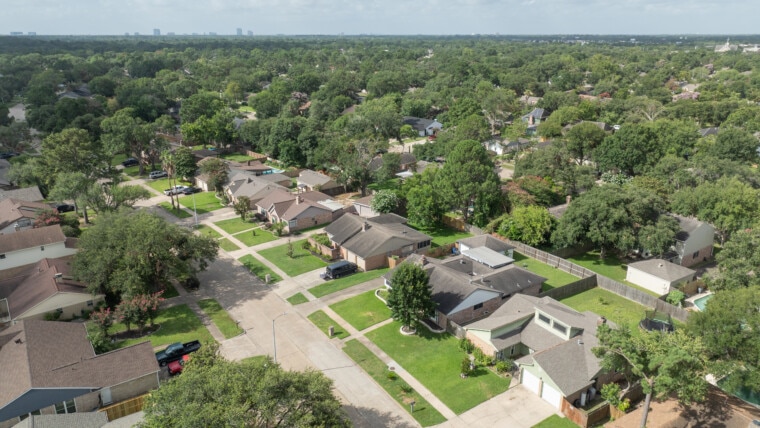Real estate agents are licensed professionals who assist buyers and sellers in real estate transactions. Like all professionals, agents are paid for their work once the transaction settles.
Here’s everything you need to know about how real estate agents get paid, how much they make and the factors that influence commission.
What Is Real Estate Commission?
Most Realtors and real estate agents work as independent contractors for a real estate brokerage. They earn an income through commissions, which are based on a percentage of a home’s sale price.
“Traditionally, real estate compensation has been transaction-based, meaning agents were only paid if a sale or purchase was successfully completed,” says Amy Adams, national real estate expert at The CE Shop, an online educational resource for real estate professionals. “This worked well for consumers, as they generally didn’t have to pay for services unless they resulted in a closed deal.”
How Real Estate Commissions Work
A real estate commission is negotiated between the agent and either the buyer or the seller. Historically, home sellers often paid the entire commission, which was usually 5% to 6% of the home’s price. However, that’s changed with a recent National Association of Realtors (NAR) settlement. Now, buyers and sellers must pay their own Realtors unless the seller offers to pay the buyer’s agent as well.
“The NAR settlement has made commission fees more clear, so buyers can now be pickier about what they’re willing to pay,” explains Yancy Forsythe, owner of Missouri Valley Homes.
After the transaction, the total commission payments typically go to the real estate brokers first. They are typically split four ways: between the buyer’s agent and buyer’s broker and between the listing agent and listing broker.
“In most states, entry-level licensees can only receive compensation through their supervising broker or brokerage firm,” Adams says. “Typically, this involves a compensation split, where the broker collects the full payment for the transaction and then pays the licensee their agreed-upon portion.”
Real Estate Commissions Example
The terms for real estate commission rates vary by sale, but here’s an example to show how it works assuming a 50-50 split.
An agreed-upon 6% commission on a $450,000 home sale would amount to $27,000. In this transaction, the commission would be split, with 3% going to the listing agent’s broker and 3% to the buyer’s agent broker. That’s $13,500 a piece, which is then split with each broker’s agent.
This means the broker would get 1.5% of the commission, and the agent receives the remaining 1.5%. In this example, each real estate agent would be paid $6,750.
Factors Influencing Commission
Several things can influence the average real estate agent’s pay. Here are some of the most influential factors.
- Property value: Because commission is typically based on a percentage of the property’s selling price, the property value is one of the most important factors in determining pay.
- Repeat business: This isn’t always the case, but some agents may charge differently for repeat clients. Adams says she charges a flat fee for clients who consistently list their properties with her.
- Market conditions: Whether it’s a buyer’s market or a seller’s market can affect commission. For example, in a seller’s market with high demand and fewer homes for sale, commissions for listing agents could decline if sellers can list and sell their homes quickly. “If it’s a hot market, agents might agree to lower commissions just to close deals faster,” Forsythe says.
- Services provided: Some agents may offer additional services, such as home staging, and charge more for the extra effort.
- Unique properties: Real estate agents may charge a higher commission for properties that require more work. “I might charge more if a property is unique and requires a specialized, more expensive marketing strategy,” Adams explains. “On the other hand, I may charge less for a property I expect to sell quickly with minimal complications.”
- Agent’s experience and reputation: A real estate agent with years of experience and a proven track record may charge a higher commission than less experienced agents.
- Brokerage fees: Real estate agents typically pay fees, which they often factor into their commission. “Licensees working under brokerage supervision, in particular, need to consider what their supervising broker allows and what their commission split with the firm will be,” Adams says. “Additionally, fees from any MLS memberships and any referral fees due also play a role in determining overall earnings.”
How Much Do Real Estate Agents Make?
According to NAR, a real estate agent’s income depends on several factors. These include brokerage splits, the housing market and competition. In 2023, the median gross income for Realtors was $55,800.
The Close, a website geared toward resources for agents and brokers, suggests that agents make more. In a 2024 analysis, The Close estimates that the national average income for agents is $90,506, with agents making the most money in Arizona, California, Kansas, Maine, Maryland and Virginia.
“Real estate agents can make anywhere from $40,000 to over $100,000 a year, depending on how many houses they sell and how much experience they have,” Forsythe says.
Location can also affect how much real estate agents make. NAR notes that agents in New York make the most on average.
According to Adams, some brokerage firms may offer a salary or a base salary plus a commission structure, but this isn’t common.
“The majority of real estate licensees work as independent contractors and do not receive a salary, Adams explains. “Instead, they earn income through commissions based on their transactions, giving them greater flexibility but also making their earnings directly tied to their performance and the deals they close.”
Additional Ways Real Estate Agents Make Money
Many real estate agents have side hustles that are still connected to the industry and complement their core business. Examples include property staging or real estate photography. Agents can make additional income through real estate investments or transition to property management.
Referrals are also a source of income for real estate agents. A referral is when an agent refers a prospective buyer or seller to another agent. The referring agent can earn a referral fee if the transaction closes.
“Other industry-related options include obtaining a Mortgage Loan Originator (MLO) license or an Appraisal certification — or both,” Adams claims. “Expanding your skill set in this way allows you to become a ‘triple threat,’ adding even more value to your clients and creating multiple streams of income.”
How Real Estate Agents Get Paid: The Bottom Line
How much a real estate agent gets paid is directly tied to the effort they put into their business and what buyers or sellers agree to pay during contract negotiations. Because commission is based on the price of the home, an agent’s earning potential can vary significantly depending on the area. Compensation is often negotiable between the prospective buyer or seller and their real estate agent, and the commission structure varies by brokerage firm.
Josephine Nesbit is a freelance content writer specializing in home improvement, real estate and home loans. Her bylines appear in various publications, including U.S. News & World Report, GOBankingRates, Rocket Mortgage and more. She also regularly works with real estate professionals nationwide to boost their content marketing efforts. Originally from Massachusetts, Josephine attended The Ohio State University and now lives in Michigan with her three young children.














